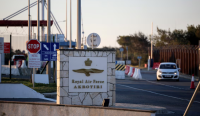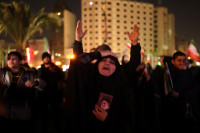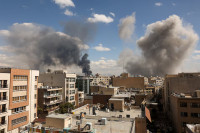World
China sets up international mediation body in Hong Kong
Escalating trade tensions between China and the US have been a focal point for investors and markets in recent months, with the trade war leading to significant impacts on global commerce and supply chains.
Reuters
China signed a convention setting up an international organisation for mediation in Hong Kong on Friday that Beijing hopes will be on par with the International Court of Justice and bolster the city’s international credentials.
The move comes amid growing geopolitical tensions that have been exacerbated by US President Donald Trump’s global trade war and fuelled risks of a sharp worldwide economic downturn.
Escalating trade tensions between China and the US have been a focal point for investors and markets in recent months, with the trade war leading to significant impacts on global commerce and supply chains.
The mediation body aims to cement Hong Kong’s presence as a top centre to resolve disputes between countries, leader John Lee said earlier this week, adding that it’s status would be on par with the International Court of Justice and the Permanent Court of Arbitration of the United Nations in The Hague.
It would help bring “substantial” economic benefits and job opportunities and stimulate various sectors including hospitality and transport, Lee said.
Indonesia, Pakistan, Laos, Cambodia and Serbia were among the countries attending the signing ceremony. Representatives from 20 international bodies including the United Nations were also expected to join, public broadcaster RTHK said.
A video shown at the signing, which was presided by Chinese Foreign Minister Wang Yi, said the scope of cases that would be handled include disputes between countries, between a country and nationals of another country and between private international entities.
The mediation group could advance China’s influence internationally and promote a more assertive role for the world’s second-largest economy in global governance, some analysts said.
Hong Kong’s Justice Secretary Paul Lam said that the new body would help Hong Kong cope with challenges that arise when “hostile external forces are attempting to de-internationalise and de-functionalise” the city.
Hong Kong tied with Singapore for second place, behind London, as the top choice for a seat of arbitration in 2025, according to the 2025 International Arbitration Survey conducted by Queen Mary University of London.
The new organisation’s headquarters will be located at a former police station in the bustling Wan Chai district, and is due to open by the end of this year or early 2026.




 9.51°C Kathmandu
9.51°C Kathmandu














